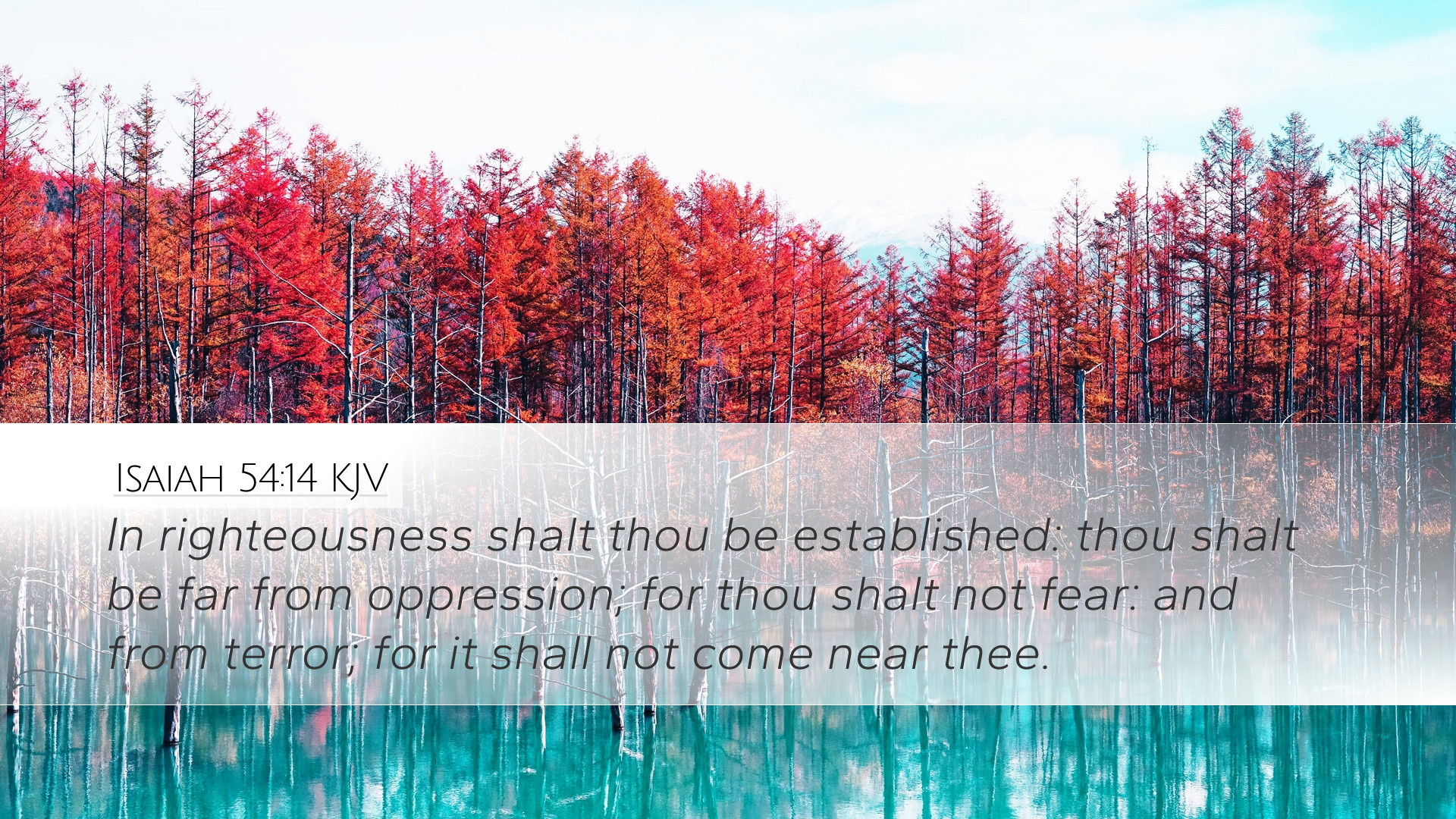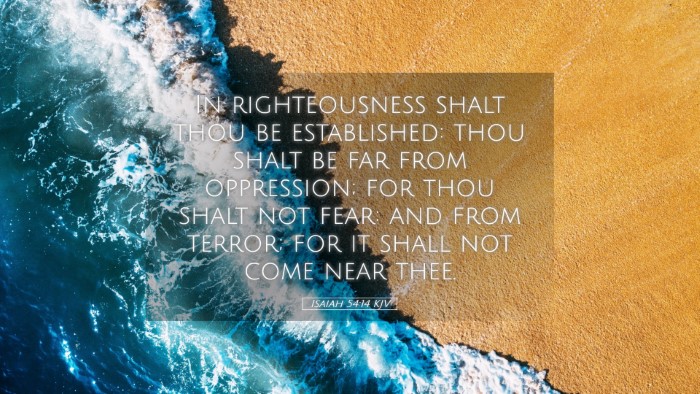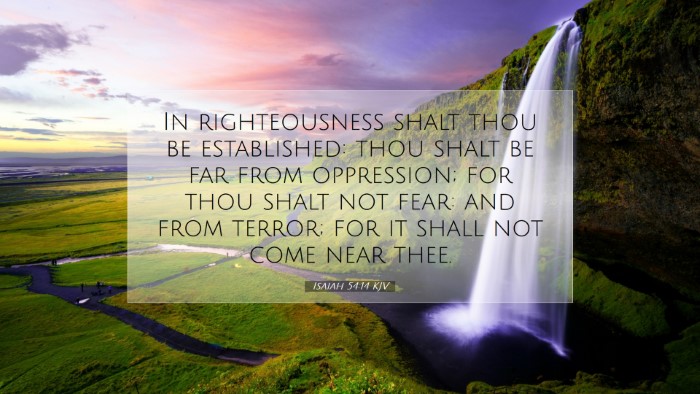Commentary on Isaiah 54:14
Isaiah 54:14 states, "In righteousness shalt thou be established: thou shalt be far from oppression; for thou shalt not fear: and from terror; for it shall not come near thee." This verse encapsulates a profound promise from God, emphasizing the themes of righteousness, security, and divine protection. Below is a summary of insights from renowned public domain commentaries that illuminate the meaning of this verse.
Contextual Background
Isaiah 54 is part of the second section of the book of Isaiah which explores themes of restoration and hope for Israel after a period of judgment and desolation. This chapter speaks to the redemptive promise of God and the comfort He provides to His people.
Theological Insights
This verse emphasizes three critical elements: establishment in righteousness, the absence of fear, and divine protection from oppression and terror. The promises made here can be broken down as follows:
-
Establishment in Righteousness:
According to Matthew Henry, the phrase "in righteousness shalt thou be established" signifies that God’s people will be grounded and validated in their moral and ethical standing before Him. This righteousness is not based on human merit but rather stems from God’s grace. The establishment in righteousness indicates that true stability in life comes from alignment with God's will.
-
Freedom from Oppression:
Albert Barnes notes that oppression in this context can refer both to physical and spiritual oppression. The promise of being "far from oppression" assures believers of God's protection against external forces that seek to harm or oppress them. This reassurance instills confidence that God defends His people against any who would threaten their well-being.
-
Absence of Fear:
Adam Clarke emphasizes that the freedom from fear is grounded in the underlying truth of righteousness. When individuals stand in God’s favor, they can face challenges unafraid because they trust in His faithfulness and power. Clarke observes that fear and terror are often products of our circumstances; however, the promise that "it shall not come near thee" suggests a profound protection over the believer’s life.
Spiritual Applications
This verse serves not only as a historical promise to Israel but also as a vital lesson for modern believers. It encourages an understanding of how one’s relationship with God impacts their life. Reflecting on this verse, we can derive several applications:
-
Embrace Righteousness:
Believers are encouraged to pursue righteousness actively. As noted by Barnes, this not only brings about personal peace but also positions the believer within God’s protective promise. Righteousness ought to be sought not just as an adherence to rules but as a heartfelt alignment with God’s character.
-
Rejecting Fear:
The assurance against terror calls believers to reject fear and anxiety. Henry writes that growing in faith enables one to view the world through a lens of confidence in God’s sovereignty, allowing believers to tackle uncertainties without succumbing to fear.
-
Trust in Divine Protection:
The promise of being "far from oppression" reassures the believer that God is an ever-present protector. Reflecting on this theme, Clarke reminds us to trust in God’s ability to provide refuge in troublesome times, thus allowing believers to cultivate peace in their hearts amidst turmoil.
Conclusion
Isaiah 54:14 encapsulates a remarkable promise of God’s grace, righteousness, and protection. The insights from esteemed commentators such as Matthew Henry, Albert Barnes, and Adam Clarke together highlight the multifaceted dimensions of this promise. They encourage believers to embody righteousness, remain unafraid, and trust in God's divine protection. For pastors, students, theologians, and Bible scholars, this verse provides a robust foundation for understanding God’s enduring commitment to His people. As we meditate on this powerful truth, may we also recognize our call to live righteously and faithfully in a world that often seeks to instill fear.


